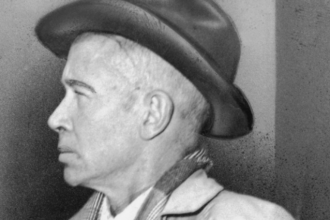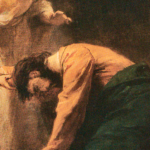Dwight Longenecker
E.E. Cummings’ attitude to dogma and formal religion may have remained skeptical, but true to his Unitarian roots, he retained respect for spirituality and a simple reverence towards the Almighty. Echoing the transcendentalism of Emerson, Whitman and Thoreau, Cummings bursts forth with simple, lyrical praise for God and nature.
What shall we make of Edward Estlin Cummings—the playful poet who abandoned capitalization and punctuation out of, one supposes, an anarchic disregard for conventionality… or was it a sentimental attempt at egalitarianism through syntax?
Does his innovation annoy? Is it essentially an adolescent pose? A party trick or a serious attempt to demolish the the form to unlock the content? It’s worth comparing Cummings and his work to two other modernist poets from Harvard: Wallace Stevens and T.S. Eliot—all three iconoclasts in their own way.
Stevens was a kind of poetic post impressionist, creating an interplay between fragments of imagery and philosophical musings. Eliot threw together dark and disparate images to evoke emotion, while Cummings deconstructed syntax, punctuation, and traditional forms to release subjective content.
All three were products of Harvard at the turn of the century. Stevens graduated in 1900, Eliot in 1909, and Cummings in 1915. At the time, Harvard was the intellectual and traditional powerhouse of America. The Puritan and transcendentalist legacy jousted with humanistic modernism. Under T.S. Eliot’s cousin, President Charles W. Eliot (1869–1909), Harvard was transformed into a modern research university. The elective system, introduced in the 1870s, allowed students flexibility in choosing courses. Intellectual curiosity was encouraged over rote learning, so that by the turn of the century, Harvard was a hub for emerging disciplines like psychology, sociology, and American literature. It was also ripe for the development of the sort of modernism in poetry produced by Stevens, Eliot, and Cummings.
While Stevens earned his living as an insurance executive, » Read More
https://theimaginativeconservative.org/2025/04/faith-e-e-cummings-dwight-longenecker.html






